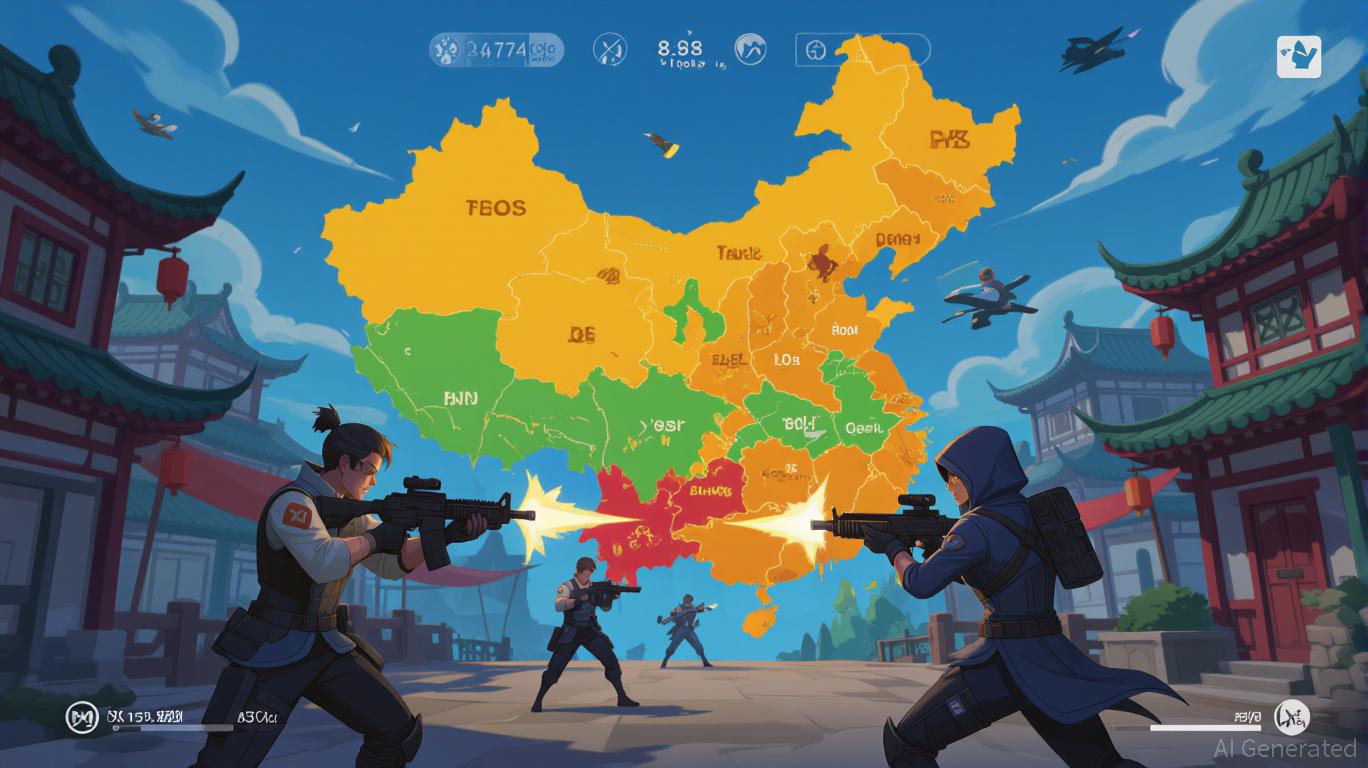
The mobile gaming landscape is undergoing a seismic shift, driven by the convergence of high-quality first-person shooter (FPS) experiences and the explosive growth of mobile-first ecosystems. At the forefront of this transformation is Tencent, whose strategic partnership with Riot Games to launch Valorant Mobile in China has set a new benchmark for mobile gaming innovation. With a global mobile gaming market projected to reach $156 billion by 2029, Tencent’s calculated approach to regional scalability, esports integration, and IP monetization positions it as a key player in the next phase of gaming’s evolution.
A Strategic Launch in China: Laying the Foundation
Tencent’s Valorant Mobile debuted in China on August 19, 2025, following months of closed beta testing and over 60 million pre-registrations—a figure that underscores the game’s immense anticipation. The mobile version, co-developed with Riot Games and Tencent’s Lightspeed Studios, retains the core competitive depth of the PC title while introducing mobile-specific features such as the “Warrior Academy” training mode, smart communication systems, and culturally inspired maps. These adaptations are critical for capturing the attention of China’s 700 million mobile gamers, many of whom are accustomed to fast-paced, accessible gameplay.
The game’s first-day performance in China was equally impressive: 170,000 iOS downloads and $1 million in player spending, primarily on cosmetic items. While specific DAU/MAU metrics remain undisclosed, Tencent’s focus on user retention—emphasized by its chief strategy officer as a “key indicator of long-term success”—suggests a deliberate shift from short-term monetization to building an evergreen franchise. This aligns with Tencent’s broader strategy of nurturing high-quality IPs, as seen with Honor of Kings and PUBG Mobile, which have sustained engagement for years through iterative updates and competitive ecosystems.
Esports as a Catalyst for Global Scalability
One of Valorant Mobile‘s most compelling aspects is its esports roadmap. Tencent and Riot Games have committed RMB 1.5 billion ($200 million) over three years to develop a competitive ecosystem in China, including the Show Cup (launched in September 2025) and the China National Circuit (set to begin in Q4 2025). These initiatives mirror the structure of the PC-based Valorant Champions Tour (VCT), ensuring a seamless transition for players and viewers. By establishing a robust esports framework in China—a market with 600 million mobile gamers and a thriving competitive scene—Tencent is creating a blueprint for global expansion.
The success of mobile esports in China is no accident. Titles like Mobile Legends: Bang Bang and Honor of Kings have demonstrated that mobile-first competitive gaming can rival PC/console esports in terms of viewership and revenue. Tencent’s investment in anti-cheat systems, replay features, and real-time penalty enforcement for Valorant Mobile further signals its intent to maintain high standards of competitive integrity, a critical factor for attracting international audiences.
Global Expansion by 2026: A Phased Approach
While no global release date has been announced, Tencent’s strategy is clear: use China as a testing ground before rolling out Valorant Mobile to other markets in 2026. Potential expansion targets include the U.S., U.K., and South Korea—regions with established mobile FPS ecosystems and a history of adopting Tencent’s titles (e.g., Call of Duty Mobile). The company’s experience with localized content, AI-driven personalization, and cross-platform integration will be pivotal in adapting Valorant Mobile to diverse markets.
However, competition is fierce. Call of Duty Mobile and PUBG Mobile dominate the FPS genre, with the former generating over $1 billion annually. Yet, Valorant Mobile‘s unique blend of tactical gameplay, character-driven narratives, and Riot’s brand equity could carve out a niche. Tencent’s ability to balance innovation with monetization—such as its use of Valorant Points (VP) instead of direct microtransactions—may also differentiate it from rivals.
Investment Potential: A Long-Term Play
For investors, Tencent’s mobile gaming strategy offers a compelling case. The company’s 40% revenue share from gaming, coupled with its R&D investments in AI and cloud gaming, positions it to capitalize on the $156 billion mobile market. Valorant Mobile‘s focus on user retention and esports infrastructure aligns with long-term value creation, as opposed to short-term revenue spikes.
Moreover, Tencent’s financial health—backed by $40 billion in cash reserves and a diversified portfolio—reduces risk. While regulatory challenges in China persist, the company’s global partnerships and mobile-first approach provide a buffer. Analysts at Niko Partners note that Tencent’s “evergreen” strategy, prioritizing sustainable engagement over aggressive monetization, could yield higher returns over time.
Conclusion: A New Era for Mobile FPS
Tencent’s Valorant Mobile is more than a game; it’s a strategic move to redefine mobile FPS as a competitive, monetizable, and globally scalable genre. By leveraging China’s mobile gaming dominance, investing in esports, and planning a 2026 global rollout, Tencent is positioning itself to lead the next wave of gaming innovation. For investors, this represents a long-term opportunity to participate in a market that is not only growing but also reshaping the very nature of digital entertainment.
